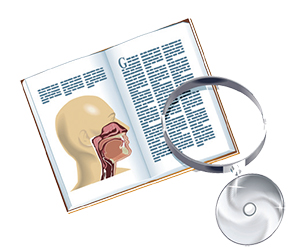 TRIO Best Practice articles are brief, structured reviews designed to provide the busy clinician with a handy outline and reference for day-to-day clinical decision making. The ENTtoday summaries below include the Background and Best Practice sections of the original article. To view the complete Laryngoscope articles free of charge, visit Laryngoscope.com.
TRIO Best Practice articles are brief, structured reviews designed to provide the busy clinician with a handy outline and reference for day-to-day clinical decision making. The ENTtoday summaries below include the Background and Best Practice sections of the original article. To view the complete Laryngoscope articles free of charge, visit Laryngoscope.com.
Explore This Issue
October 2015Background
As obstructive sleep apnea (OSA) is a complex disease confounded by concomitant respiratory, metabolic, and cardiovascular morbidities, the question remains how weight loss affects the apnea/hypopnea index (AHI).
Obesity is a predisposition toward the development of OSA, with estimated projections that >70% of individuals living with OSA have a body mass index (BMI) >25. In current practice, all patients with OSA are recommended that they undergo weight loss as part of their treatment if overweight. Studies from the 1980s and 1990s consistently demonstrated improvement in OSA severity in patients with weight loss. Unclear use of terms distinguishing between OSA, sleep-disordered breathing, and obesity-hypoventilation, along with the lack of data on polysomnography findings and inadequate long-term follow-up, however, limit many of the early studies in reliably establishing the relationship between surgical weight loss and OSA.
Best Practice
Among obese cohorts eligible for surgical intervention, bariatric surgical weight loss consistently reduces the severity of AHI and associated symptoms, although cures for OSA are elusive by the existing literature. Future studies are needed to more diametrically determine the effect of weight loss on OSA using unified metrics such as a 50% reduction or an AHI <20 (Laryngoscope. 2014;124:816-817).